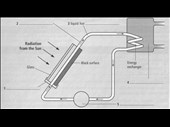Solution for: Research project on attitudes towards study
Answer Table
| 1. C | 6. E |
| 2. A | 7. G |
| 3. B | 8. A |
| 4. A | 9. D |
| 5. B | 10. B |
Exam Review
Research project on attitudes towards study

So how did you get on with your school-based research, Phoebe?
Well, it was exhausting but really valuable.
Good. What was the specific focus you chose?
My title is ‘Attitudes towards study among eleven-twelve year-old pupils’.
Right. And what made you choose that focus?
Well, that’s a bit difficult ... lots of my classmates decided on their focus really early on.. .mainly on the basis of what they thought would help in their future career, you know, in their first year’s teaching.
So that’s what helped you decide?
Actually, it was that I came across a book written by experienced teachers on student attitudes and that motivated me to go for the topic.
So what were your research questions or issues?
Well I wanted to look at the ways students responded to different teachers particularly focusing on whether very strict teachers made teenagers less motivated.
And, from your research, did you find that was true?
No, not from what I saw you know, from my five days’ observation, talking to people and so forth.
OK ... We’ll talk about the actual research methods in a moment, but before that, can you briefly summarise what your most striking findings are.
Well, what really amazed me was the significant gender differences, I didn’t set out to focus on that but I found that boys were much more positive about being at school ... girls were more impatient, they talked a lot about wanting to grow up and leave school.
Very interesting.
Yeah ... it is. From doing the research it was clear to me that you might start out to focus on one thing but you pick up lots of unexpected insights.
Right. Did you get any insights into teaching?
Yes, certainly. I was doing a lot of observations of the way kids with very different abilities collaborate on certain tasks, you know, help each other and I began to realise that the lessons were developing in really unexpected ways.
So what conclusion do you draw from that?
Well, I know it’s necessary for teachers to prepare lessons carefully but it’s great if they also allow lessons to go their own ways.
Good point. Now, I’m really pleased to see you doing this - analysing and drawing conclusions based on data.
But surely this isn’t proper data ...
Because it’s derived from such small-scale research? Well, as long as you don’t make grand claims for your findings, this data is entirely valid.
Hmm .
I like the way you’re already stepping back from the experience and thinking about what you’ve learned about research ... well done.
But I know I could have done it better.
As you become more experienced you’ll find ways to reduce the risk of difficulties.
OK.
Tony: So, let’s look in more detail at how you gathered your data. Let’s start with lesson observation.
Phoebe: Well, it generally went quite smoothly. I chose my focus and designed my checklist. Then teachers allowed me into their classes without any problems, which surprised me. It was afterwards that the gruelling work started!
Tony: Yeah, it’s very time consuming, isn’t it? Making sense of...analysing ... your observation notes.
Phoebe: Absolutely. Much more so than interview data, for example ... that was relatively easy to process, though I wanted to make sure I used a high-quality recorder ... to make transcription easier and I had to wait until one became available.
Tony: Right. And did you interview some kids as well?
Phoebe: In the end, yes, I talked to ten, and they were great. I’d imagined I’d be bored listening to them, but.. .
Tony: So it was easy to concentrate?
Phoebe: Sure. One of the teachers was a bit worried about the ethics, you know, whether it was right to interview young pupils, and it took a while for him to agree to let me talk to three of the kids in his class but he relented in the end.
Tony: Good. What other methods did you use?
Phoebe: I experimented with questionnaires, but I really regret that now. I decided to share the work with another student but we had such different agendas it ended up taking twice as long.
Tony: That’s a shame ... it might be worth you reflecting on ways you might improve on that for future projects .
Phoebe: You’re right, yeah.
Tony: OK.
Phoebe: And the other thing I did was stills photography. I didn’t take as many pictures as I’d hoped to .
Tony: Lack of time?
Phoebe: It’s pretty easy just snapping away ... but I wanted each snap to have a purpose, you know, that would contribute to my research aims and I found that difficult.
Tony: Well, that’s understandable, but remember...
Questions 1-5
You will hear a woman called Phoebe, who is training to be a teacher, talking to her tutor, called Tony, about research she has done in a school.
Choose the correct letter, A, B or C.
Research project on attitudes towards study
1 Phoebe’s main reason for choosing her topic was that
A her classmates had been very interested in it.
B it would help prepare her for her first teaching post.
C she had been inspired by a particular book.
Answer: C Locate Listen from here
2 Phoebe’s main research question related to
A the effect of teacher discipline.
B the variety of learning activities.
C levels of pupil confidence.
Answer: A Locate Listen from here
3 Phoebe was most surprised by her finding that
A gender did not influence behaviour significantly.
B girls were more negative about school than boys.
C boys were more talkative than girls in class.
Answer: B Locate Listen from here
4 Regarding teaching, Phoebe says she has learned that
A teachers should be flexible in their lesson planning.
B brighter children learn from supporting weaker ones.
C children vary from each other in unpredictable ways.
Answer: A Locate Listen from here
5 Tony is particularly impressed by Phoebe’s ability to
A recognise the limitations of such small-scale research.
B reflect on her own research experience in an interesting way.
C design her research in such a way as to minimise difficulties.
Answer: B Locate Listen from here
Questions 6-10
What did Phoebe find difficult about the different research techniques she used?
Choose FIVE answers from the box and write the correct letter A-G, next to questions 6-10.
Difficulties
A Obtaining permission
B Deciding on a suitable focus
C Concentrating while gathering data
D Working collaboratively
E Processing data she had gathered
F Finding a suitable time to conduct the research
G Getting hold of suitable equipment
Research techniques
6
Answer: E Locate Listen from here Observing lessons
7
Answer: G Locate Listen from here Interviewing teachers
8
Answer: A Locate Listen from here Interviewing pupils
9
Answer: D Locate Listen from here Using questionnaires
10
Answer: B Locate Listen from here Taking photographs
Other Tests
-
Total questions: 12
- 7- Summary, form completion
- 5- Sentence Completion
-
Total questions: 0
- 4- Multiple Choice
- 3- Summary, form completion
- 3- Sentence Completion
-
Total questions: 10
- 6- Multiple Choice
- 4- Sentence Completion
-
Total questions: 5
- 5- Plan, map, diagram labelling
-
Total questions: 10
- 10- Summary, form completion
-
Total questions: 10
- 10- Summary, form completion











